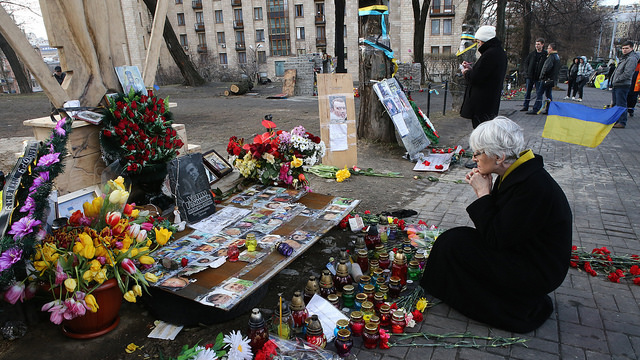This article discusses different scenarios for Ukraine depending upon Russia’s motives and the possible threat of nuclear war.
The article begins as follows:
No one yet knows how the Ukraine crisis will play out. Indeed, the whole story is a lesson in the perils of prediction. Already we have a classic: “Putin’s Bluff? U.S. Spies Say Russia Won’t Invade Ukraine,” published February 27, just as Russian troops were entering Crimea. But considering the best and worst cases highlights some important opportunities to make the most of the situation.
Here’s the short version: The best case scenario has the Ukraine crisis being resolved diplomatically through increased Russia-Europe cooperation, which would be a big step towards world peace. The worst case scenario has the crisis escalating into nuclear war between the United States and Russia, causing human extinction.
Let’s start with the worst case scenario, nuclear war involving the American and Russian arsenals. How bad would that be? Put it this way: Recent analysis finds that a “limited” India-Pakistan nuclear war could kill two billion people via agricultural declines from nuclear winter. This “limited” war involves just 100 nuclear weapons. The U.S. and Russia combine to possess about 16,700 nuclear weapons. Humanity may not survive the aftermath of a U.S.-Russia nuclear war.
The remainder of the article is available in the Huffington Post.
Image credit: US Embassy in Kyiv
This blog post was published on 28 July 2020 as part of a website overhaul and backdated to reflect the time of the publication of the work referenced here.










